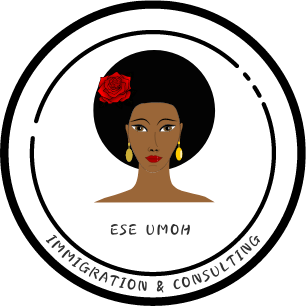On October 9, 2025, Ontario held a new round of invitations through the Ontario Immigrant Nominee Program (OINP). The province invited 1,680 candidates to apply for provincial nomination mainly through the Employer Job Offer streams and the Regional Economic Development through Immigration (REDI) pilot.
This draw shows that Ontario continues to focus on filling important jobs in health care, early childhood education, and smaller regional communities that need more workers.
What Happened in This Draw
In total, 1,680 invitations were sent out:
-
Around 1,590 invitations went to people working in healthcare and early childhood education (for example, nurses, home support workers, and early childhood educators).
-
About 90 invitations were issued under the REDI pilot, which supports immigration to smaller communities such as Lambton, Lanark, and Leeds & Grenville.
To qualify, candidates needed a valid job offer in Ontario and an active Expression of Interest (EOI) profile in the OINP Employer Portal.
The selection scores ranged roughly from 31 to 75, depending on the job type and program.
See below summary of October 9 draw
| Date issued | Stream | Profiles created | Score range | Number of invitations issued | Target group |
|---|---|---|---|---|---|
| October 9, 2025 | Employer Job Offer streams | July 2, 2025 – October 9, 2025 | 38 and above | 1,590 | Health occupations and early childhood educators and assistants |
| Employer Job Offer streams (REDI) | 51 and above | 90 | Regional Economic Development through Immigration (REDI) |
Why This Draw Matters
Ontario’s 2025 immigration quota is smaller than last year, so competition is tougher.
Instead of inviting people from many fields, the province is focusing on workers it needs the most especially in healthcare, childcare, and regional areas that are short on labour.
This approach helps Ontario use its limited nomination spots wisely and fill jobs that are hardest to staff.
See below draw conditions for Employer Job Offer streams: Health and early childhood occupations
| Stream | Minimum Score | Eligible Occupations (NOC 2021) |
|---|---|---|
| Employer Job Offer: Foreign Worker | 38 and above | 31100 – Specialists in clinical and laboratory medicine;
31101 – Specialists in surgery; 31102 – General practitioners and family physicians; 31300 – Nursing coordinators and supervisors; 31301 – Registered nurses and registered psychiatric nurses; 31302 – Nurse practitioners; 31303 – Physician assistants, midwives and allied health professionals; 32101 – Licensed practical nurses; 33102 – Nurse aides, orderlies and patient service associates; 42202 – Early childhood educators and assistants |
| Employer Job Offer: International Student | 56 and above | |
| Employer Job Offer: In-Demand Skills | 31 and above | 44101 – Home support workers, housekeepers and related occupations |
Ontario’s Main Focus Areas
1. Health and Childcare Jobs
Ontario is facing major shortages of nurses, support workers, and early childhood educators. This draw shows the province’s continued effort to fill these important roles.
2. Supporting Smaller Communities
The REDI pilot encourages newcomers to live and work outside big cities. It’s meant to boost local economies and help smaller towns grow.
3. Fewer, More Targeted Invitations
Instead of inviting thousands of people at once, Ontario is choosing fewer candidates who closely match the province’s needs.
This means the process is becoming more selective — but also more strategic.
Tips for Future Applicants
If you’re hoping to move to Ontario through the OINP, here’s what you can do:
-
Focus on in-demand jobs like healthcare or childcare.
-
Make sure your job offer is genuine and meets all OINP requirements.
-
Keep your Expression of Interest (EOI) up to date in the Employer Portal.
-
Be ready to apply quickly if you get an invitation — deadlines are strict.
-
Consider smaller communities through the REDI program, where competition is lower.
-
Stay informed — Ontario often updates its rules and may open or close streams with little notice.
The October 9 OINP draw shows Ontario’s current immigration priorities: bringing in skilled workers for healthcare, education, and regional development.
For newcomers, it’s a sign that Ontario remains a strong destination — but with fewer spots available, it’s more important than ever to match your skills to the province’s needs and keep your application ready.
Need help with your Canadian immigration process?
Whether you’re applying for a visitor visa, submitting a work permit or visa application, creating an Expression of Interest (EOI), setting up an Express Entry or Provincial Nomination profile, preparing your application after receiving an Invitation to Apply, or simply want a professional review of your self-prepared application, we’re here to assist you.
Schedule a consultation or contact us at:
info@eseumohimmigration.com










